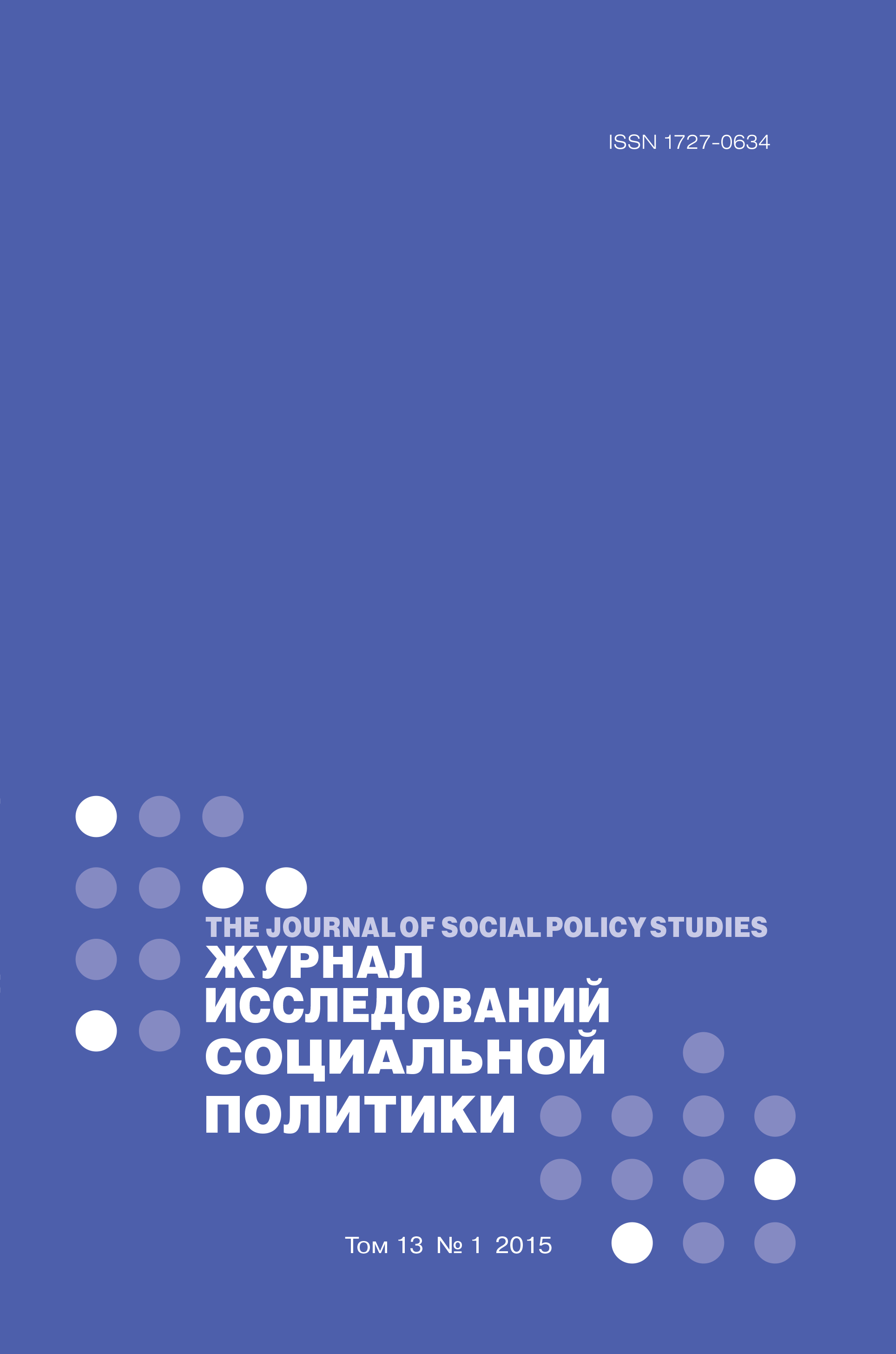The Social contract as a mechanism enabling households to overcome poverty in Russia
Abstract
Social policy aimed at bringing about poverty reduction is designed for groups of people at high risk of entering poverty and those who are already part of the poor majority. The current method used to estimate poverty in Russia focuses on the part of the population in active age groups with a high labour potential. The new system of social support for families has changed direction from the passive help of benefits to more active styles of support that can help households break out of the poverty zone. These more active forms have included drives to increase the labour potential of families and raise their incomes. The target of these policies have been, in the main, families with unemployed members in working age. This program of social transfers has been deployed in a variety of regions throughout Russia from the beginning of this century.
The rules employed by the state social services on the basis of the current social contract are eclectic and irregular in the various regions of Russia. This includes a great deal of diversity with regards the people targeted to receive social services, the conditions of the programs, their types and the amount of support on offer. The first results from the implementation of this system were published by the Ministry of Labour and regional offices of social services in 2013 in 36 regions. This article shows how households failed to become self-supporting in the majority of regions. As a result of the new measures, 15% of households’ unemployed members found employment, and 9% of household members saw their incomes increased. However in rural areas, support to bolster the economic activity of farmers led to better figures in escaping poverty (35%).
System of occasioned addressed social benefits with conclusion of contract is more progressive compare to ordinary «payable» system, but only for families with labor potential (unemployed adults). Nonetheless, even though many families were unable to break free of poverty on the first try, efforts in this area did enough to at least reduce their dependence and improve their levels of self-belief and confidence.
In contrast to developed countries, where the system of social contract has been in place for several decades, in Russia the main factor of poverty is not unemployment but low wage levels. It is still commonplace to find employed workers in poverty and the current system of social benefits is unable to solve this problem. However, the use of this system has provided opportunities that improved the condition of a quarter of all poor households.















